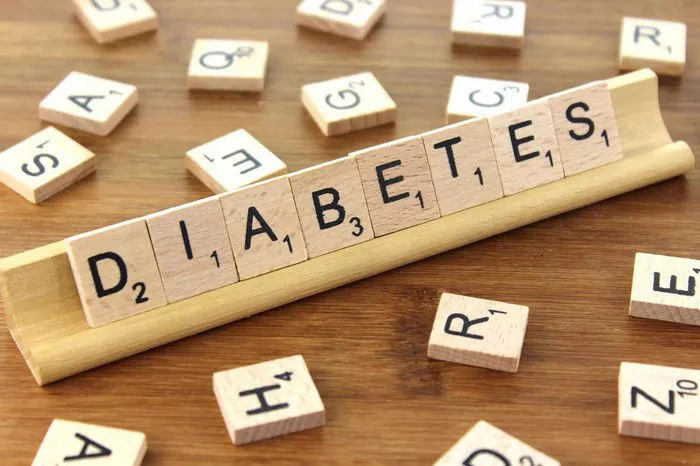Diabetes, a chronic condition characterized by elevated blood sugar levels, affects millions of individuals worldwide. Among its various forms, Type 1 and Type 2 diabetes are the most prevalent, each with distinct causes, symptoms, and treatment approaches. Understanding the disparities between these two types of diabetes is crucial for effective management and care.
Introduction to Diabetes
Diabetes mellitus is a metabolic disorder characterized by high blood sugar levels over a prolonged period. Glucose, a vital source of energy for the body’s cells, enters the bloodstream from food. However, insulin, a hormone produced by the pancreas, facilitates the absorption of glucose into cells, thereby regulating blood sugar levels.
In individuals with diabetes, the body either does not produce enough insulin (Type 1) or becomes resistant to insulin’s effects (Type 2), leading to elevated blood sugar levels. Over time, uncontrolled diabetes can result in serious complications, including cardiovascular disease, kidney damage, nerve damage, and vision impairment.
Distinguishing Between Type 1 and Type 2 Diabetes
While both Type 1 and Type 2 diabetes involve dysregulation of blood sugar levels, they differ significantly in terms of onset, underlying causes, and treatment strategies.
1. Onset and Age of Diagnosis
One of the primary distinctions between Type 1 and Type 2 diabetes lies in their onset and age of diagnosis.
- Type 1 Diabetes: Formerly known as juvenile diabetes or insulin-dependent diabetes, Type 1 diabetes typically manifests during childhood or adolescence. However, it can also develop in adults. The onset of Type 1 diabetes is often sudden, with symptoms appearing rapidly over a short period.
- Type 2 Diabetes: Formerly referred to as adult-onset diabetes or non-insulin-dependent diabetes, Type 2 diabetes commonly develops in adulthood, although it is increasingly being diagnosed in children and adolescents, primarily due to rising obesity rates. Unlike Type 1 diabetes, the onset of Type 2 diabetes is gradual, and symptoms may be mild or absent initially.
2. Underlying Causes
The underlying mechanisms driving Type 1 and Type 2 diabetes differ significantly.
- Type 1 Diabetes: Type 1 diabetes is an autoimmune condition in which the body’s immune system mistakenly attacks and destroys insulin-producing beta cells in the pancreas. The exact cause of this autoimmune response remains unclear, but genetic predisposition and environmental factors, such as viral infections, are believed to play significant roles.
- Type 2 Diabetes: Type 2 diabetes develops when the body becomes resistant to insulin or when the pancreas fails to produce enough insulin to meet the body’s needs. Risk factors for Type 2 diabetes include obesity, sedentary lifestyle, family history of diabetes, and aging. While genetics play a role in Type 2 diabetes, lifestyle factors such as poor diet and lack of exercise are major contributors.
3. Symptoms
Although both Type 1 and Type 2 diabetes involve elevated blood sugar levels, the presentation of symptoms may vary.
- Type 1 Diabetes: Symptoms of Type 1 diabetes often appear abruptly and may include excessive thirst, frequent urination, unexplained weight loss, fatigue, irritability, blurred vision, and increased hunger. If left untreated, Type 1 diabetes can lead to a life-threatening condition called diabetic ketoacidosis (DKA).
- Type 2 Diabetes: Symptoms of Type 2 diabetes may develop gradually and may be less noticeable initially. Common symptoms include increased thirst, frequent urination, fatigue, blurred vision, slow wound healing, and recurring infections. Many individuals with Type 2 diabetes may remain asymptomatic for years, leading to delayed diagnosis and complications.
4. Treatment Approaches
Treatment strategies for Type 1 and Type 2 diabetes aim to regulate blood sugar levels, prevent complications, and improve overall quality of life. However, the approaches differ based on the underlying causes of each condition.
- Type 1 Diabetes: Management of Type 1 diabetes typically involves insulin therapy, as the body does not produce insulin on its own. Individuals with Type 1 diabetes require regular insulin injections or insulin pump therapy to control blood sugar levels. Additionally, monitoring carbohydrate intake, engaging in regular physical activity, and maintaining a healthy lifestyle are essential components of Type 1 diabetes management.
- Type 2 Diabetes: Treatment for Type 2 diabetes may involve lifestyle modifications, oral medications, injectable therapies, and, in some cases, insulin therapy. Lifestyle interventions, including dietary changes, regular exercise, weight management, and smoking cessation, are fundamental in managing Type 2 diabetes. Oral medications such as metformin, sulfonylureas, and thiazolidinediones may be prescribed to improve insulin sensitivity or reduce glucose production in the liver. In advanced cases, insulin therapy or other injectable medications may be necessary to achieve optimal blood sugar control.
5. Prognosis and Complications
Both Type 1 and Type 2 diabetes can lead to serious complications if left untreated or poorly managed.
- Type 1 Diabetes: Without proper treatment, Type 1 diabetes can result in severe complications such as diabetic ketoacidosis, hypoglycemia (low blood sugar), cardiovascular disease, nerve damage (neuropathy), kidney damage (nephropathy), and eye damage (retinopathy). However, with vigilant management and adherence to treatment regimens, individuals with Type 1 diabetes can lead healthy and fulfilling lives.
- Type 2 Diabetes: Untreated or poorly managed Type 2 diabetes can lead to similar complications as Type 1 diabetes, including cardiovascular disease, neuropathy, nephropathy, retinopathy, and lower limb amputations. However, the risk of complications can be mitigated through lifestyle modifications, medication adherence, regular monitoring of blood sugar levels, and proactive management of other risk factors such as hypertension and dyslipidemia.
Conclusion
In summary, while Type 1 and Type 2 diabetes share the common characteristic of elevated blood sugar levels, they are distinct conditions with different underlying causes, onset patterns, and treatment approaches. Understanding these differences is essential for healthcare professionals, individuals living with diabetes, and their caregivers to effectively manage the condition, prevent complications, and improve long-term outcomes. By promoting awareness, education, and access to comprehensive care, we can empower individuals with diabetes to lead healthy and fulfilling lives despite the challenges posed by this chronic condition.



























